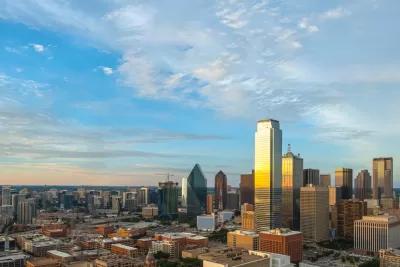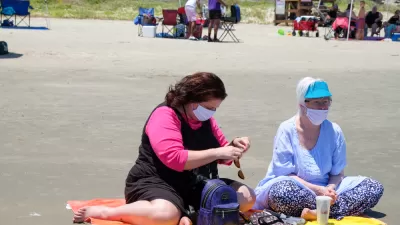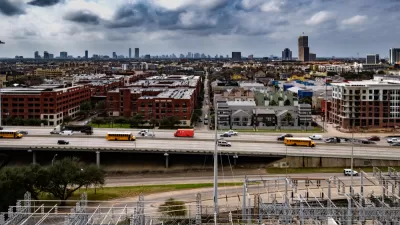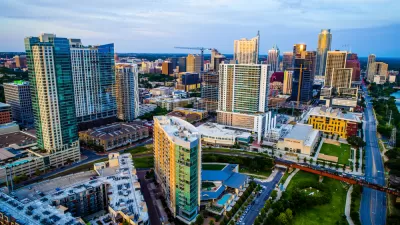Dallas will need voter approval to overcome tax increase obstacles put in place by the Texas State Legislature.

"Dallas is feeling COVID-19′s financial impact, and now officials may consider raising property taxes to shore up next year’s budget," reports Obed Manuel.
City Council members are considering a resolution that would set the stage to raise city’s property tax revenue grew by 8%. "The Texas Legislature last year capped property tax revenue increases at 3.5%. Anything higher than that requires voter approval," according to Manuel.
The City Council deliberates as the city prepares to deal with a loss of annual revenue somewhere between $73 million and $134 million as a consequence of the pandemic, according to the article.
For context of the tax revenue situation in Dallas relative to the other large cities in Texas, a new report by the Kinder Institute for Urban Research compares the tax structure of Dallas, Houston, and San Antonio, predicting that all three will have to reduce service as a result of declining revenue in 2020. Each of the three largest Texan cities will encounter constraints when trying to generate new sources of revenue to make up the difference, but the report specifically notes that new state law limiting property tax increases in the case of both Dallas and San Antonio.
Houston's constraints "include the locally imposed revenue cap, the lack of a solid waste collection fee, the fact that the city maintains its own health department and the sequestering of general fund revenues for public works under ReBuild Houston," according to the report.
For national context, the Lincoln Institute of Land Policy has created a new report to follow developments in property tax policies as cities deal with the financial consequences of the pandemic (in addition to gathering past work on property tax together as a resource for COVID-19). The "Property Tax and COVID-19" report is available to read online for free.
FULL STORY: Dallas weighing 8% property tax hike as city faces revenue shortages

Study: Maui’s Plan to Convert Vacation Rentals to Long-Term Housing Could Cause Nearly $1 Billion Economic Loss
The plan would reduce visitor accommodation by 25,% resulting in 1,900 jobs lost.

North Texas Transit Leaders Tout Benefits of TOD for Growing Region
At a summit focused on transit-oriented development, policymakers discussed how North Texas’ expanded light rail system can serve as a tool for economic growth.

Why Should We Subsidize Public Transportation?
Many public transit agencies face financial stress due to rising costs, declining fare revenue, and declining subsidies. Transit advocates must provide a strong business case for increasing public transit funding.

How Community Science Connects People, Parks, and Biodiversity
Community science engages people of all backgrounds in documenting local biodiversity, strengthening connections to nature, and contributing to global efforts like the City Nature Challenge to build a more inclusive and resilient future.

Alabama: Trump Terminates Settlements for Black Communities Harmed By Raw Sewage
Trump deemed the landmark civil rights agreement “illegal DEI and environmental justice policy.”

Dear Tesla Driver: “It’s not You, It’s Him.”
Amidst a booming bumper sticker industry, one writer offers solace to those asking, “Does this car make me look fascist?”
Urban Design for Planners 1: Software Tools
This six-course series explores essential urban design concepts using open source software and equips planners with the tools they need to participate fully in the urban design process.
Planning for Universal Design
Learn the tools for implementing Universal Design in planning regulations.
City of Santa Clarita
Ascent Environmental
Institute for Housing and Urban Development Studies (IHS)
City of Grandview
Harvard GSD Executive Education
Toledo-Lucas County Plan Commissions
Salt Lake City
NYU Wagner Graduate School of Public Service





























